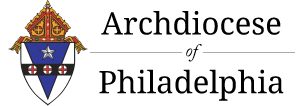 Like Franco Zeffirelli’s Jesus of Nazareth, Mel Gibson’s superb motion picture, The Passion of the Christ, drives right through the fatigue and cynicism of the modern world and straight into the human heart.
Like Franco Zeffirelli’s Jesus of Nazareth, Mel Gibson’s superb motion picture, The Passion of the Christ, drives right through the fatigue and cynicism of the modern world and straight into the human heart.
These two films continue to touch us over the years not just because they’re beautifully and powerfully made – they’re clearly that, and more — but because their story is true. Jesus Christ lived for us; died for us, and was raised up for us. And because of that truth, joy and hope have taken root in the world.
Today a believer’s trust in God can seem implausible. The Christian Churches in China suffered ferocious repression under Mao Zedong and still face constant harassment. Yet the Church in China is now thriving, and if current trends continue, China will have the largest Christian population in the world by 2030.
In Muslim-majority countries, Christians have faced persecution and discrimination, including at times savage religious violence, for centuries. The bombing of Coptic churches in Egypt this year, only days ago on Palm Sunday, was merely the latest of thousands of hate crimes committed against Christian communities in the Middle East, repeated again and again down through history – and too often ignored by Western media. But still the Christian Churches persist and survive. They teach us what real Christian witness means.
This year and every year, Holy Week is a time to remember that, as the late Cardinal Augustin Mayer once said, “nothing great is ever achieved without suffering.” Discipleship always has a cost. No Christian ever lives the Gospel without eventually encountering the cross. During the Triduum – Holy Thursday, Good Friday and Holy Saturday – the Church invites us to remember that sin is real and that only blood can redeem it . . . but also that God loves us so deeply that he sent his only son to offer himself for our deliverance.
In giving his life for us, Jesus asks us to live our lives for others. He asks us to share in his work of redemption. That’s why the Gospel is never merely a call to be “nice” to others. There’s nothing sweet about Golgotha. Life in Jesus Christ is a call to heroic and self-sacrificing love. If we want to rise with Jesus on Easter, we also have to share his work of salvation on Good Friday.
C.S. Lewis captured this basic Christian understanding very clearly when he wrote that, “Christianity is a thing of unspeakable joy. But it begins not in joy, but in wretchedness, and it does no good to try to get to the joy by bypassing the wretchedness.”
Of course, the nature of everyday America in 2017 is that we all live our lives in routines – routines that tend to dull us into self-absorption at work, at play, in our families, and also in our religious faith. Even the broken body of Jesus on the cross can become a standard piety, an object of lip service devotion that doesn’t really touch our hearts. That’s why these days of Holy Week are so vital. Holy Week is the most sacred time of the year. It’s a time to wake up from our routines and shake off the distractions of daily life — and to concentrate on the One in whom we anchor our hope.
This year, listen to the Word of God with new ears. Make some personal room for silence this Triduum. Read and pray over the Gospel accounts of the crucifixion. Venerate the cross. Remember the price paid for your redemption. Understand how zealously God loves you . . . and when you do, you’ll begin understand the meaning of the Gospel and the urgency of your own vocation to bring the fruit of God’s love – new life in Jesus Christ — to others.
Good Friday is an end: an end to death; an end to our old selves and our old selfishness. Easter Sunday is a beginning, the beginning, of a new and “unspeakable joy” for each of us, and for all of us. The sorrow of Holy Week is the doorway to something infinitely more beautiful.
May God grant all of us, a blessed Triduum — and a holy and joy-filled Easter.
# # #
Editor’s Note: Columns will be published each week on www.CatholicPhilly.com and can also be found at https://archphila.org/archbishop-chaput/statements/statements.php.






